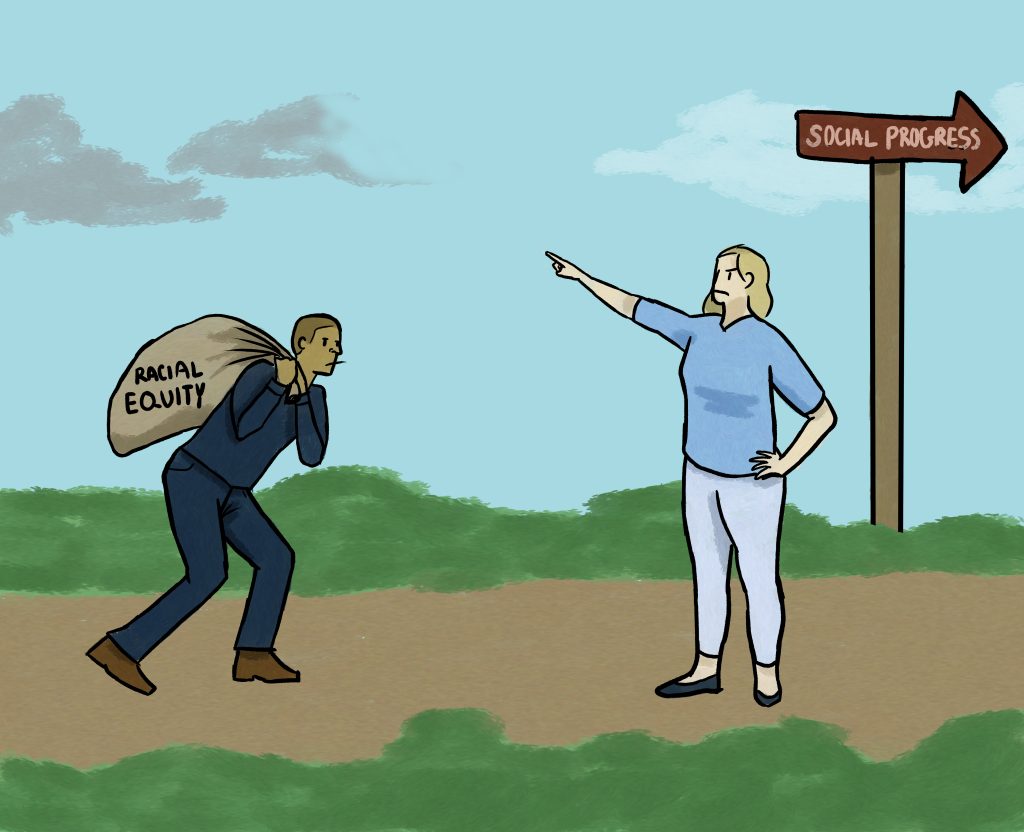OPINION: In racial education, Washington State pulls its weight
The history of America is defined by those who opposed racism, just as much as those who supported it.
Over the course of Black History Month, I have attempted to cover how racism still plays a systemic and detrimental role in our society. There are many Americans who would claim that it doesn’t, and some would say that those who think as I do are full of it. Many believe that racism in America is gone.
Although I strongly disagree with that evaluation, I see why so many think that way. The Civil War and slavery exist only in textbooks, and segregation is slowly fading from public memory. The obvious signs of systemic racism are gone.
For those who do not actively seek out information on active racism within our society, it’s easy to look around and say we beat it, it is gone. That was my impression for the first twenty years of my life.
Yet as I have stated in previous articles this month, systemic racism does still exist, it just knows to be a lot less obvious. It hides behind curtains of legitimacy, such as Reagan’s “War on Drugs” or the various voter restriction bills passed in many states this last year.
For this reason, proper education is one of the most crucial remedies we have against resurgent racist sentiment in this country.
Here in Washington and specifically around our UWT campus, we are fortunate to enjoy a progressive climate rooted in the beliefs of equality and acceptance. I believe this sentiment is reflected in our approach to education.
Last May, Governor Jay Inslee signed into law Senate Bill 5227 which mandated Critical Race Theory training, evaluation and education in public K-12 schools as well as forty public colleges in universities, including our own University of Washington.
Bill 5227 does allow local school boards to reserve the right to decide whether CRT education will be allowed in their schools. According to Crosscut News, some school districts like the Chehalis School District are exercising that right, claiming that they will not teach kids that they are either guilty or innocent based on their race.
Yet much of what is prescribed in Bill 5227 is directed at teachers and faculty, not to students or the official curriculum. There have been recent changes in curriculum to incorporate a more diverse perspective in subjects such as history or literature, but these are most often proposed and introduced by individual schools or faculty.
Jesse Hagopian who teaches ethnic studies at Seattle’s Garfield High School told Crosscut,
“Critical race theory teaches how racism is not just an individual problem of people saying bigoted things, but it’s an institutional problem. There are systems that perpetuate racism. Those insights are important for our kids to discuss.”
Hagopian went on to say that often it is the students who are bringing these conversations to class, without prompting from teachers.
Here at UWT, our racial education is some of the best in the country. Dr. Honey and Dr. Sundermann’s history courses on racial history, labor and colonialism are some of the best courses I have ever taken.
According to College Factual, we rank in the top ten percentile for general diversity, and the top five for both racial-ethnic diversity and gender diversity. Nowhere is perfect, but I believe those are numbers we can be proud of.
America is not unique, and white people are not inherently more racist than other races. In this country’s history, white people have benefited the most from racism, sure, but racism has touched every corner of the globe, and every nation in-between.
With that type of consistency, it is impossible to deny that racism has, does and will play a systematic role not only at a national level, but at a species-wide level as well. It stems from our most primal of instincts, to reflexively distrust something unfamiliar and to be naturally drawn to the familiar, our own kind so to speak.
With the gift of sentience and education, we are able to look past those primal instincts and evolve into a more compassionate and successful species. Any school should seek to make this principle one of the central pillars of its curriculum, and any government should formalize this principle within its mandates.
Here in Washington, and around our UWT campus, we are seeing signs that we are doing our part. Good job guys, Happy Black History Month.



